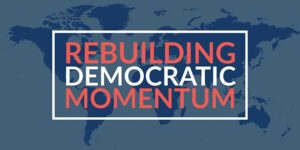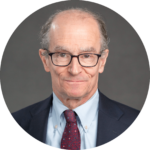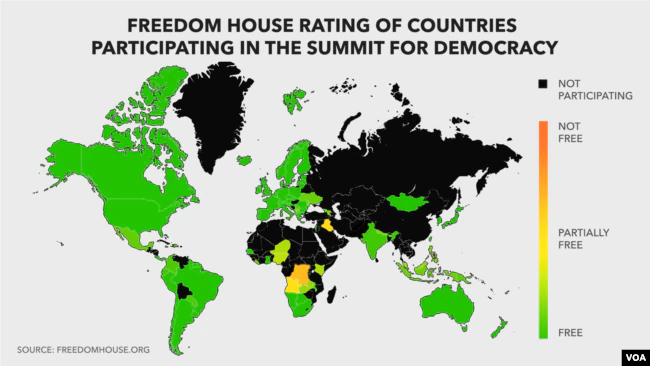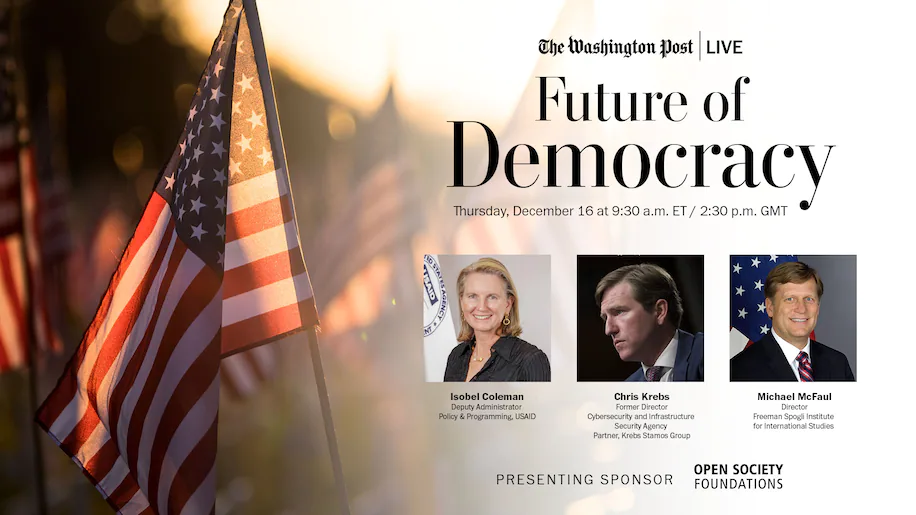President Joe Biden today acknowledged the United States’ democratic vulnerabilities as he introduced the virtual Summit for Democracy in which government leaders, civil society and the private sector will “set forth an affirmative agenda for democratic renewal and to tackle the greatest threats faced by democracies today through collective action.”
He announced a Presidential Initiative for Democratic Renewal, a series of foreign assistance schemes of up to $424.4 million in the coming year, subject to Congressional approval, VOA reports. The funds will support independent media and anti-corruption efforts, empowering reformers, labor unions and marginalized groups, advancing technology that supports democracy, and defending free and fair elections.
 “We stand at an inflection point,” President Biden said. “Will we allow the backward slide of rights and democracy to continue unchecked?” Current trends are “largely pointing in the wrong direction,” he added. “In the face of sustained and alarming challenges to democracy and universal human rights, democracy needs champions.”
“We stand at an inflection point,” President Biden said. “Will we allow the backward slide of rights and democracy to continue unchecked?” Current trends are “largely pointing in the wrong direction,” he added. “In the face of sustained and alarming challenges to democracy and universal human rights, democracy needs champions.”
Echoing such sentiments, the National Endowment for Democracy’s President and CEO Damon Wilson said “we need to draw on the strength, resilience and determination of courageous activists and political actors to regain our footing and to rebuild democratic momentum with a campaign of democratic solidarity.”
 “The pathway to democratic renewal begins by supporting those on the front lines of the fight whether an anonymous blogger, an imprisoned human rights defender or Nobel Peace Prize winning journalist, all under pressure from autocrats,” he added, introducing a NED forum on Rebuilding Democratic Momentum.
“The pathway to democratic renewal begins by supporting those on the front lines of the fight whether an anonymous blogger, an imprisoned human rights defender or Nobel Peace Prize winning journalist, all under pressure from autocrats,” he added, introducing a NED forum on Rebuilding Democratic Momentum.
Autocratic states have launched a fierce PR offensive against the Summit over recent weeks, insisting on their own democratic credentials.
Emboldened autocrats?
That Russia and China have both gone to such lengths to defend their “democracies” suggests the summit has at least hit an exposed nerve – or that the autocracies feel so emboldened that they feel they can mount a credible counter offensive. The Atlantic Council’s Daniel Fried, former US ambassador to Poland, fears it may be the latter, The Guardian adds.

Daniel Fried/CEPA
“The authoritarians are serious. This is not abstract. Tyrants start wars,” said Fried, a NED board member. “Putin is threatening a generalised war with Ukraine. He thinks his time has come again and democracy is on the wane. We have seen this movie before and it does not end well. It’s the 1930s all over again.” There is no more urgent task than for democracies to renew themselves.
Now is the time to bolster global democratic renewal, said Christopher Walker, the NED’s vice president for studies and analysis. “It’s more important than ever under tougher conditions to fortify and defend democracy when it’s under such clear duress,” he told VOA.
Tension [between global democratic aspirations and domestic political dysfunction] will loom over the two-day virtual gathering of leaders from model democracies like Germany, Japan and Sweden to countries with mixed records such as Georgia, Nigeria and Pakistan, The Times adds.
 “The U.S. is clearly going through a rough patch right now,” said Michael J. Abramowitz, the president of Freedom House, which ranked the United States ranked 50th on its annual index of global freedom, he said. But domestic shortcomings should not deter the United States from promoting its core values, he told The Times, “as long as it’s done with humility.”
“The U.S. is clearly going through a rough patch right now,” said Michael J. Abramowitz, the president of Freedom House, which ranked the United States ranked 50th on its annual index of global freedom, he said. But domestic shortcomings should not deter the United States from promoting its core values, he told The Times, “as long as it’s done with humility.”
The US is indeed approaching the Summit with humility, Uzra Zeya, the under secretary for civilian security, democracy and human rights, told the NED forum (below).
But it also acts with confidence, she added: “Humility in that we want to listen and learn and don’t shy away from our shortcomings; confidence in our constant striving for a more perfect union; and our certainty that, working together, democracies can and will deliver for the world’s citizens, regardless of the raw deal that autocrats and authoritarians try to sell.”
 “Make no mistake, we’re at a moment of democratic reckoning,” said Zeya. “Countries in virtually every region of the world have experienced degrees of democratic backsliding.”
“Make no mistake, we’re at a moment of democratic reckoning,” said Zeya. “Countries in virtually every region of the world have experienced degrees of democratic backsliding.”
Need for strategy
Annie Boyajian, director of advocacy at non-profit Freedom House, said the Summit had the potential to push struggling democracies to do better and to spur coordination between democratic governments. “But, a full assessment won’t be possible until we know what commitments there are and how they are implemented in the year ahead,” she told AFP/Reuters.
Institutional shortcomings in the United States certainly need addressing, adds Daniel Twining, president of the International Republican Institute, a NED core institute. But the summit cannot be an exercise in self-criticism that creates new propaganda for foreign authoritarians. The central goal of the summit must be defending and enlarging the free world rather than lamenting its inadequacies, he writes for the Hill.
The Biden administration could also use the summit to set out longer-term plans to work with other countries facing similar threats to democracy, said Rachel Kleinfeld, a senior fellow in the Carnegie Endowment for International Peace. For example, officials could strategize on ways to crack down on U.S. extremist groups increasingly making connections overseas, she told The Times.
“American democracy at home and global democracy abroad are in dire need of strategy, of improvement, because both are facing swift recession,” Ms. Kleinfeld said. “But a summit is not a strategy. In fact, a summit has been a distraction.”
Join Washington Post Live on Thursday, Dec. 16 at 9:30 a.m. ET for a series of conversations about the future of democracy and the threats faced by democracies worldwide, The Post adds. USAID Deputy Administrator for Policy and Programming Isobel Coleman discusses the Agency’s work abroad to strengthen democracy, human rights and governance, and former U.S. Ambassador to Russia Michael McFaul and former Director for the Cybersecurity and Infrastructure Security Agency Christopher Krebs talk about the power of technology to shape and distort political discourse and freedom of the press around the world. REGISTER HERE.








